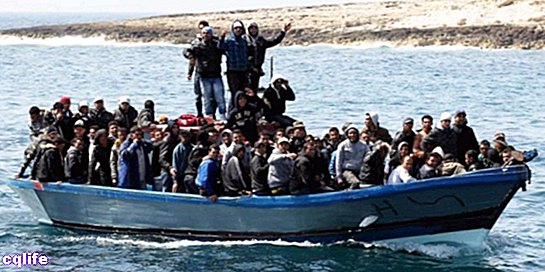We explain what social processes are and how sociology studies them. Also, what types exist and the characteristics of each one.

What are social processes?
Social processes are a concept of the sociology, which denotes the interaction dynamics of individuals and the different groups that make up a society, as they engage and readjust their patterns of conduct, responding to each other's influence reciprocally.
This sounds very complicated like that, but in reality it means that we call social processes to the dynamics within a society that determine the behaviour of the different groups what's inside it. These groups can compete and generate conflict (then called "negative") or collaborate, exchange and show solidarity (then called "positive").
Social interaction is a process complex, vast and diverse that occurs within societies and is key to their formation. Social interaction is always mutual, whether in peaceful or conflictual terms, and it is the key to the circulation of concepts such as identity, membership, etc. The life human is not possible without social interaction.
Thus, sociology is interested in the patterns that appear in said social interaction. They can be recognizable on a large scale, since they order human groups in specific ways and put certain types of speeches.
Precisely, these arrangements are social processes. They are often studied from a historical and / or political perspective, as they have an important impact on the way societies govern themselves and the fate that awaits them.
Types of social processes
There is no single and universal way to classify social processes, since they are usually very specific and to understand them you must always pay attention to their context. But starting from a generalization and an abstraction, that is, thinking about them in isolation, we could differentiate them into:
- Processes of cooperation. Those that are synergistic in nature, that is, of sum of energies, and that occur between human groups whose interaction tends to mutual benefit. Cooperation occurs much more easily when there are objectives common, and tends in the long run to produce lasting links of solidarity.
- Accommodation processes. They are those in which there is a social adjustment, that is, a rearrangement of social forces, real or imaginary, around a new configuration of the can or resources. This is what happens, for example, with the arrival of migrants, and usually involves a social exchange, a loss and a gain, which does not necessarily imply that it occurs in harmonic terms.
- Assimilation processes. Typical of situations of colonization, long-term domination or absorption of human groups within others, it is about fusion - not necessarily in terms of equality or equivalence- of different human groups. In others disciplines It is known as transculturation or acculturation, and it usually also involves a certain exercise of violence.
- Processes of competence. As its name suggests, it is about social processes of a conflictive nature, in which two or more human groups compete for dominance of society or a sector of it, whether in economic, political, social or even military terms. . Seen like this, wars they are social processes of enormous competition and conflict. It is, if you will, the opposite of cooperation.
